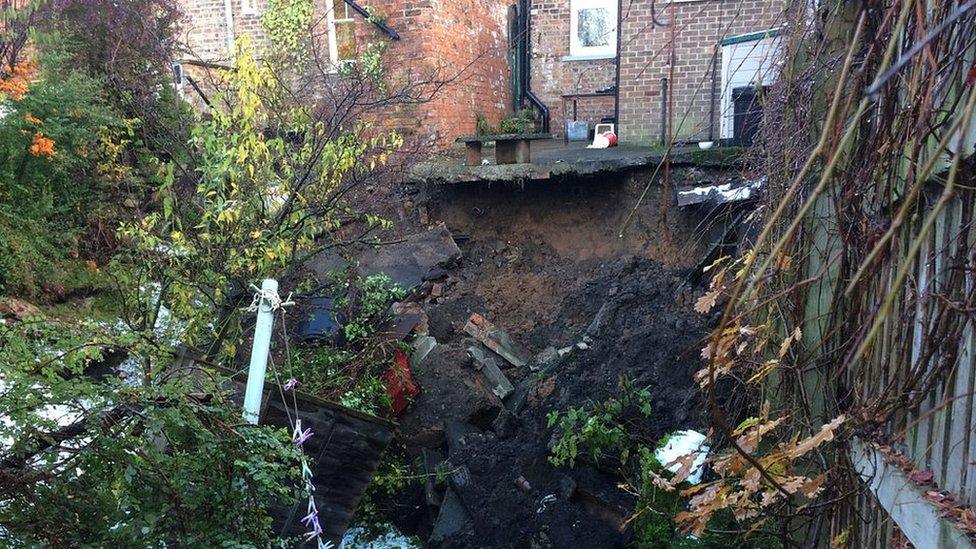Ripon sinkhole concerns halt Harrogate council homes plans
- Published
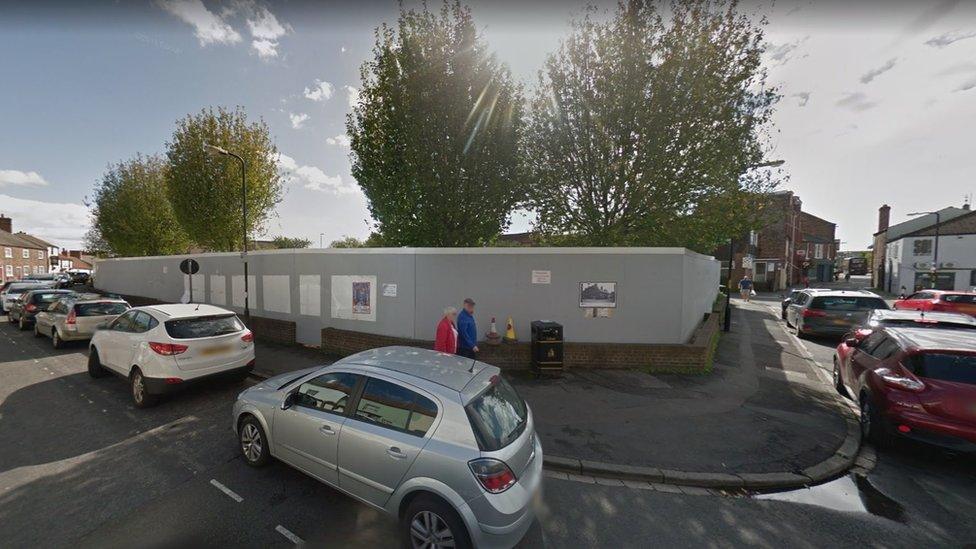
An engineering firm found ground instability "could be foreseen" on or near the Ripon site
Plans to build a block of council homes in one of the UK's most sinkhole-prone cities have been abandoned due to the geological risk.
Harrogate council said 17 proposed units at Allhallowgate in Ripon, North Yorkshire, could not progress.
The decision followed problems with ground stability at the site, it added.
Ripon sits above a layer of gypsum - a water-soluble rock that leads to the formation of large underground caves that can collapse.
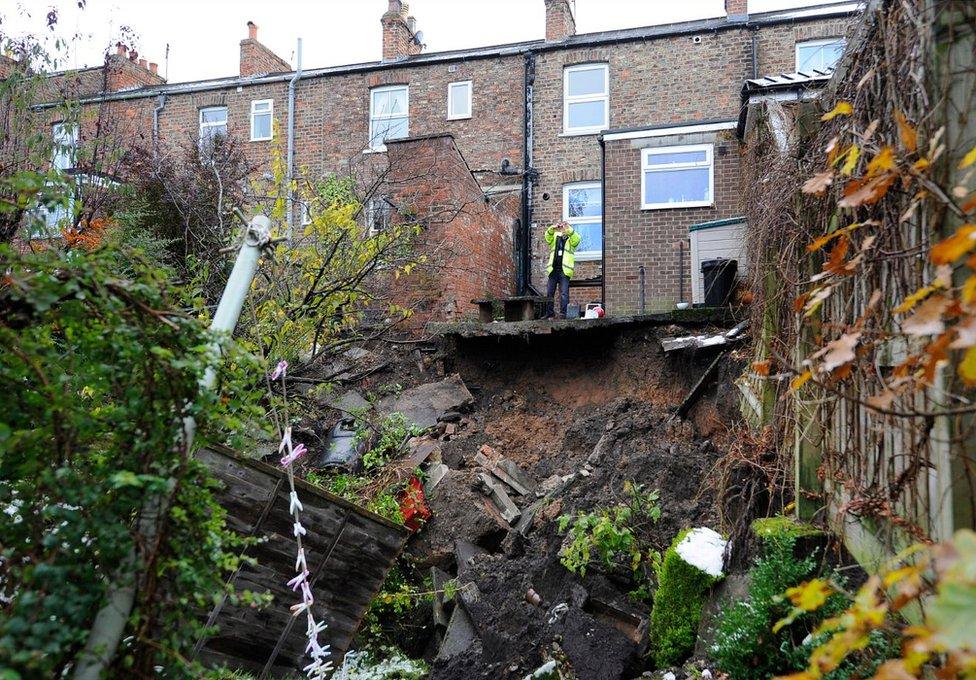
Twelve properties in Ripon were evacuated after a 20ft (6m) deep hole appeared in 2016
Councillor Mike Chambers told a Harrogate Borough Council meeting there had been "significant problems with ground stability" that had "taken a lot of time, money and effort to try and sort out".
It was earlier recommended any building on the site be designed with foundations and "escape paths" aimed at withstanding sinkholes up to 65ft (20m) in diameter.
Permission for developments on council-owned land at Allhallowgate and Finkle Street in the town had initially been approved.
This included the refurbishment of existing council homes on Finkle Street, the Local Democracy Reporting Service said.
Mr Chambers confirmed to councillors the refurbishment would go ahead but said the future of the land that had been set aside for new buildings was unclear.
An investigation in August by an engineering firm found ground instability "could be foreseen" on or near the site and measures to reduce the risk of collapse were not cost-effective.
A major sinkhole saw 12 properties in the city evacuated after a deep hole appeared in 2016.
Last year a supermarket was closed when a hole opened up at the back of the store.
Vanessa Banks, of the British Geological Survey, said last year Ripon could expect to have a sinkhole event every three to five years.

Follow BBC Yorkshire on Facebook, external, Twitter, external and Instagram, external. Send your story ideas to yorkslincs.news@bbc.co.uk, external.
- Published4 April 2019
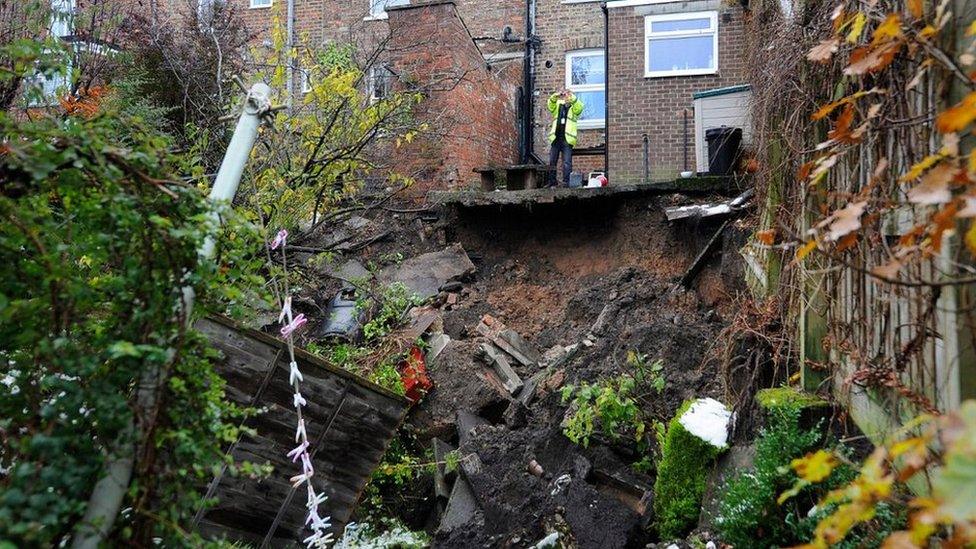
- Published11 March 2019
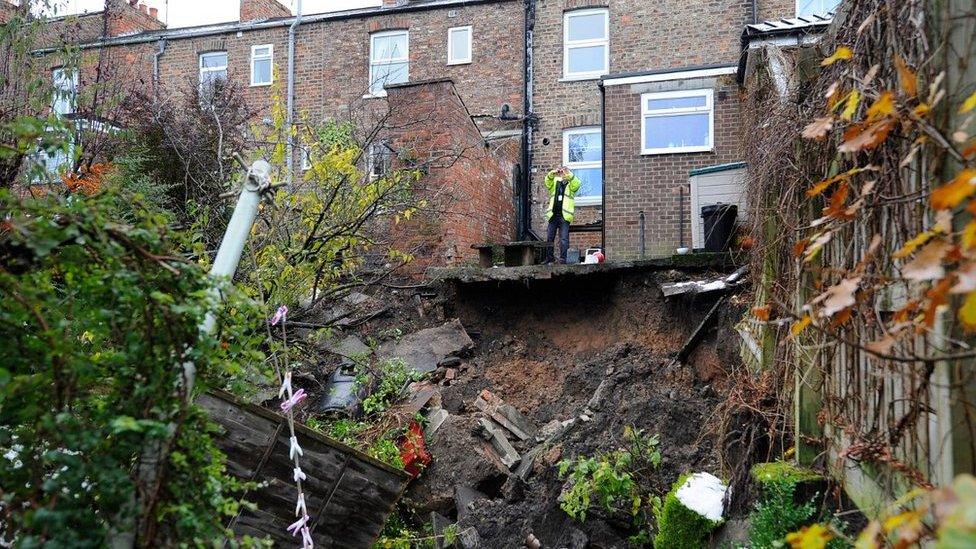
- Published21 August 2018
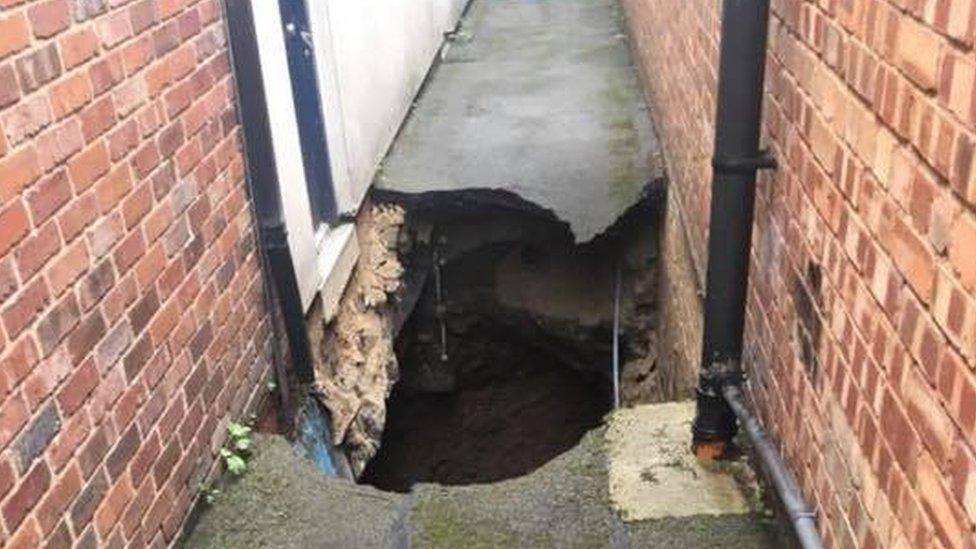
- Published11 November 2016
